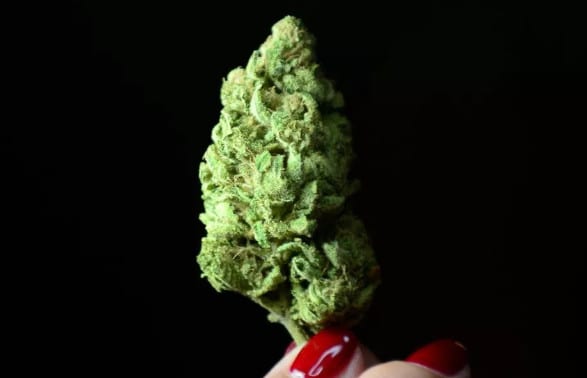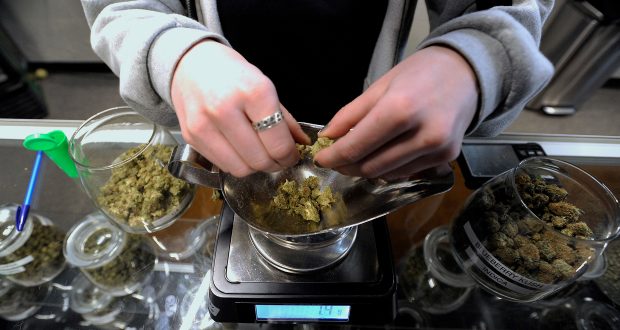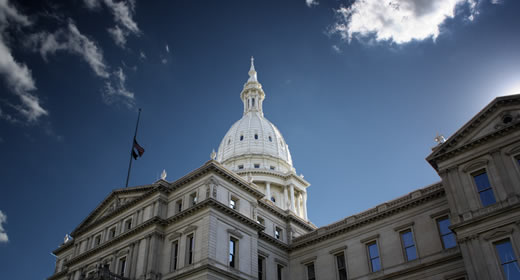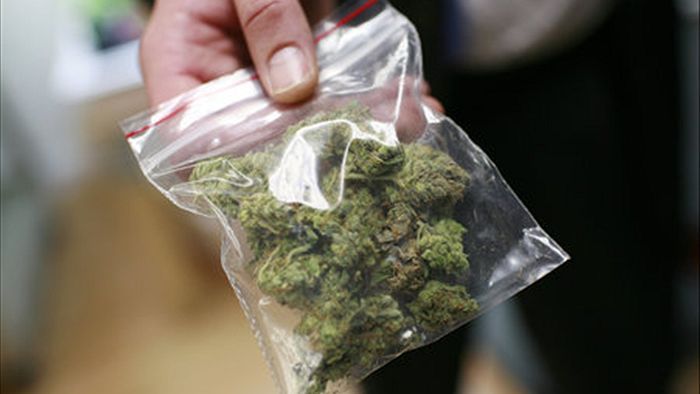Amid growing demands for a special session on medical marijuana and harsh criticism of lawmakers’ failure to reach agreement on the issue, Senate President Joe Negron sent a memo to his members Thursday seeking input on the possibility of sealing a deal with the House.
The Senate leader’s two-page memo doesn’t expressly call for a special session, but it’s the clearest indication since talks broke down Friday that lawmakers might return to Tallahassee to implement a voter-approved constitutional amendment that broadly legalized medical marijuana.
House and Senate leaders were unable to reach agreement on one major factor last week: how many retail outlets medical marijuana operators should be able to run. The annual legislative session ended Friday for issues unrelated to the state budget, which was wrapped up Monday.
While the Senate favored a cap of up to 15 dispensaries for each operator, the House —- which originally backed an infinite number of retail outlets —- ultimately settled on a limit of 100 per operator before Republican leaders acknowledged publicly they had failed to finalize an accord.“The question is whether or not there is a path forward to bridge that divide,” Negron, R-Stuart, told The News Service of Florida in a telephone interview Thursday. “There is communication between House members and senators on lots of issues, including medical marijuana. That’s productive and healthy. So let’s see where it goes.”
Lawmakers are highly unlikely to return to Tallahassee without having an agreed-upon deal, a possibility that remained questionable Thursday.
Negron gave no indication he was willing to back down from his stance that the state must limit the number of “pot shops” as part of the rollout of the constitutional amendment, which passed in November with more than 71 percent of the vote and could make Florida one of the most lucrative medical marijuana markets in the country. Estimates show that more than 500,000 patients could be eligible for the treatment.
Negron, who has maintained that lawmakers have an obligation to implement the constitutional amendment, said early input from his members indicated support for the Senate position on capping retail outlets.
“They’re telling me that they would like to resolve it but that they strongly support the Senate position on not having an unwarranted expansion on dispensaries without first establishing patient demand,” he said.
But House Speaker Richard Corcoran predicted legislators will return to the Capitol and pass a comprehensive measure that eluded them during the two-month regular session.
“I believe there should be a special session, and there will be a special session,” Corcoran, R-Land O’ Lakes, told the News Service on Thursday. “I’m confident that we can get to a resolution.”
Last week’s meltdown over the marijuana legislation resulted in finger-pointing by Corcoran and Negron, who blamed each other for failing to agree on a plan to carry out the amendment.
The Legislature’s inaction leaves the rollout of the amendment in the hands of the Department of Health, which has been widely criticized by lawmakers and the public for its handling of a 2014 law that opened the door for medical marijuana in Florida.
Since the 2014 law went into effect, the agency has spent more than $1.2 million in legal fees and costs on challenges dealing with rules and selection of the state’s seven current medical marijuana license-holders.
John Morgan, the Orlando trial lawyer who largely bankrolled what was known as Amendment 2, has pledged to sue the state over whether patients should be allowed to smoke the marijuana treatment. Lawmakers have balked at the idea, but Morgan insists smoking was permitted in the constitutional proposal.
The News Service reported Wednesday that one marijuana operator —- Quincy-based Trulieve —- has been selling “whole flower” marijuana products for nearly a year and this week began selling a bud-like product intended to be vaporized by patients. While patients are prohibited by current law from smoking cannabis products, the bud-like product can easily be used in joints, bongs or pipes. Legislative leaders were surprised by the report.
Morgan on Thursday urged the Legislature to hold a special session to set the framework for the amendment, rather than leaving it in the hands of the state agency.
“I think there’s real ramifications for all these politicians,” Morgan, a Democrat who is considering a run for governor next year, said in a telephone interview Thursday. “Because if you ask Florida what happened in the session, the answer’s real simple. They didn’t do what they’re supposed to do, which is implement medical marijuana laws.”
Sources close to House leadership indicated that a possible agreement would require 10 new marijuana-operator licenses, with a statewide cap of 850 dispensaries, distributed on a first-come, first-served basis.
Both sides had agreed on 10 new licenses, but the Senate plan would have forced the Department of Health to issue the new licenses more quickly than the House proposed.
If Corcoran and Negron can agree to a deal, a special session would most likely take place as early as next week, Negron indicated.
“In my general experience in the process, the longer it takes from the conclusion of a regular session to set a special session, the less likely it is that a special session will occur,” Negron said. “So there’s a certain window that exists to realistically be able to try to resolve these differences.”
credit:orlandoweekly.com













